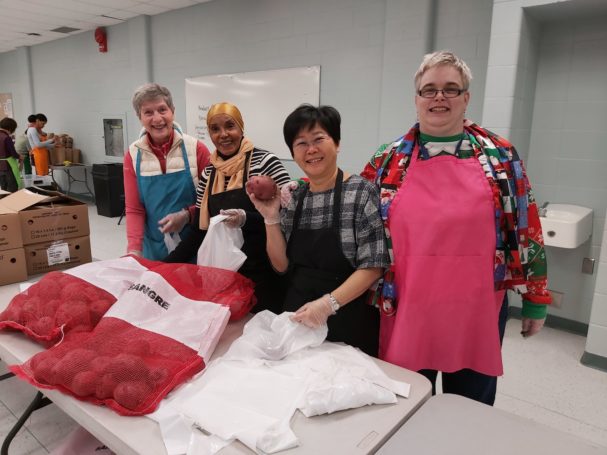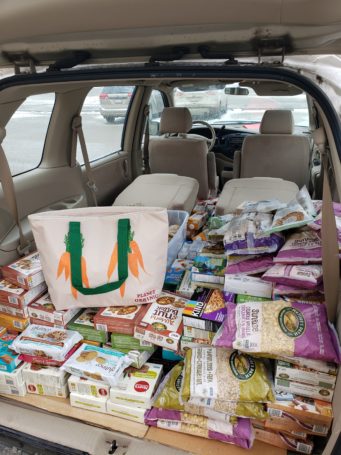July 8, 2020
ECF grant enables expansion of Grocery Run to meet rising food security concerns for Edmonton’s ethnocultural minority families during COVID
In 2016, the Multicultural Health Brokers Cooperative (MCHB) began coordinating donations of grocery retail food that had passed its sell-by dates but was still usable.
The Grocery Run program was a stopgap measure to meet some same-day food emergency needs of families arriving and resettling as newcomers and refugees.
An in-house study found that many families in their programs were spending 75 to 100 per cent of their income on housing, leaving nothing for basic needs such as food.
“We serve families at the end of the spectrum of financial means to pay for basic needs such as food,” said Julia Tran, Community Resource Coordinator. Tran’s voice quavers with emotion when she speaks about the struggles and barriers that ethnocultural minority groups face upon entering and settling in Canada.

Many newcomers are putting together various part-time, low-paying entry-level jobs, many of which were eliminated by the pandemic and which may not return for the foreseeable future.
Initially the Grocery Run program served 76 families. Over time, that number rose to 100. But as COVID-19 hit, the number rocketed to 400 families on a weekly basis.
“COVID-19 has really forced us to step up and ramp up,” Tran says.
The Multicultural Family Resource Society applied for the Edmonton Community Foundation’s Rapid Response Fund and received $23,100 to be able to better collect, purchase, and distribute food to newcomer families during the pandemic crisis.
“When you have a program that operates on food donations, you’re really uncertain of the volume as well as the type of food you will receive,” explains Tran about the logistics of sourcing donations appropriate for various cultural and culinary backgrounds. Tran refers to this as “food dignity,” and The Grocery Run program tries to source the types of food that are part of families’ traditions and can help heal traumas.

“What makes the Grocery Run program quite unique is that each family is connected to a co-op broker from their own ethnocultural community who speaks their language, who understands their pre-immigrant experience and helps them navigate post-immigration trauma in resettling,” says Tran.
And awareness and sensitivity to cultural needs around food is key, she said.
“It’s nothing fancy —really just staples that are nutritious that contribute to the well-being of families.”
But the awareness helps select foods to deliver, so families can create their cultural meals as well as meet basic nutritional needs, Tran added.
“It really speaks to the inherent strengths and values of food and how food dignity can be a mobilizer for more than what we often see.”
Learn more about ECF’s response to the COVID-19 pandemic here.